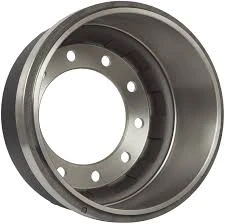
-
 Afrikaans
Afrikaans -
 Albanian
Albanian -
 Amharic
Amharic -
 Arabic
Arabic -
 Armenian
Armenian -
 Azerbaijani
Azerbaijani -
 Basque
Basque -
 Belarusian
Belarusian -
 Bengali
Bengali -
 Bosnian
Bosnian -
 Bulgarian
Bulgarian -
 Catalan
Catalan -
 Cebuano
Cebuano -
 Corsican
Corsican -
 Croatian
Croatian -
 Czech
Czech -
 Danish
Danish -
 Dutch
Dutch -
 English
English -
 Esperanto
Esperanto -
 Estonian
Estonian -
 Finnish
Finnish -
 French
French -
 Frisian
Frisian -
 Galician
Galician -
 Georgian
Georgian -
 German
German -
 Greek
Greek -
 Gujarati
Gujarati -
 Haitian Creole
Haitian Creole -
 hausa
hausa -
 hawaiian
hawaiian -
 Hebrew
Hebrew -
 Hindi
Hindi -
 Miao
Miao -
 Hungarian
Hungarian -
 Icelandic
Icelandic -
 igbo
igbo -
 Indonesian
Indonesian -
 irish
irish -
 Italian
Italian -
 Japanese
Japanese -
 Javanese
Javanese -
 Kannada
Kannada -
 kazakh
kazakh -
 Khmer
Khmer -
 Rwandese
Rwandese -
 Korean
Korean -
 Kurdish
Kurdish -
 Kyrgyz
Kyrgyz -
 Lao
Lao -
 Latin
Latin -
 Latvian
Latvian -
 Lithuanian
Lithuanian -
 Luxembourgish
Luxembourgish -
 Macedonian
Macedonian -
 Malgashi
Malgashi -
 Malay
Malay -
 Malayalam
Malayalam -
 Maltese
Maltese -
 Maori
Maori -
 Marathi
Marathi -
 Mongolian
Mongolian -
 Myanmar
Myanmar -
 Nepali
Nepali -
 Norwegian
Norwegian -
 Norwegian
Norwegian -
 Occitan
Occitan -
 Pashto
Pashto -
 Persian
Persian -
 Polish
Polish -
 Portuguese
Portuguese -
 Punjabi
Punjabi -
 Romanian
Romanian -
 Russian
Russian -
 Samoan
Samoan -
 Scottish Gaelic
Scottish Gaelic -
 Serbian
Serbian -
 Sesotho
Sesotho -
 Shona
Shona -
 Sindhi
Sindhi -
 Sinhala
Sinhala -
 Slovak
Slovak -
 Slovenian
Slovenian -
 Somali
Somali -
 Spanish
Spanish -
 Sundanese
Sundanese -
 Swahili
Swahili -
 Swedish
Swedish -
 Tagalog
Tagalog -
 Tajik
Tajik -
 Tamil
Tamil -
 Tatar
Tatar -
 Telugu
Telugu -
 Thai
Thai -
 Turkish
Turkish -
 Turkmen
Turkmen -
 Ukrainian
Ukrainian -
 Urdu
Urdu -
 Uighur
Uighur -
 Uzbek
Uzbek -
 Vietnamese
Vietnamese -
 Welsh
Welsh -
 Bantu
Bantu -
 Yiddish
Yiddish -
 Yoruba
Yoruba -
 Zulu
Zulu
drum brake removal
Drum Brake Removal A Step-by-Step Guide
Removing drum brakes can seem daunting, but with the right tools and a bit of patience, it’s a task that most DIY enthusiasts can accomplish. Drum brakes are commonly used in older vehicles and some rear-end systems of modern cars. Here’s a comprehensive guide on how to remove drum brakes safely and effectively.
Tools and Materials Needed
Before you start, gather the necessary tools - Jack and jack stands - Lug wrench - Screwdriver (flathead) - Brake cleaner - C-clamp or brake spreader tool - Safety glasses - Gloves - Torque wrench - Replacement parts (if needed)
Step 1 Safety First
Start by parking your vehicle on a flat surface and engaging the parking brake. Ensure wear safety glasses and gloves to protect yourself from debris and sharp edges during the process.
Step 2 Loosen the Lug Nuts
Using a lug wrench, loosen the lug nuts on the wheel you’re working on without removing them completely. This step is easier while the tire is still on the ground.
Step 3 Lift the Vehicle
Using a jack, lift the vehicle off the ground. Secure it with jack stands to prevent any accidents. Once the vehicle is stable, remove the lug nuts and take off the wheel to expose the drum brake system.
Step 4 Removing the Drum
Before removing the drum, inspect the assembly. Sometimes, the drum can be stuck due to wear or corrosion. Use a flathead screwdriver to gently pry between the drum and the backing plate, being careful not to damage any components. If necessary, you can tap the drum gently with a hammer to loosen it.
drum brake removal

Once the drum is free, slide it off the wheel hub. This may require some force if it has been on for a long time.
Step 5 Inspect the Brake Assembly
With the drum removed, inspect the brake shoes, springs, and other associated hardware. Look for wear and tear or any components that might need replacement. Take pictures to help reassemble parts correctly.
Step 6 Remove Brake Shoes (if necessary)
If you're replacing the brake shoes, use a C-clamp to compress the brake shoes together. Carefully detach the springs and the retaining clips with a screwdriver or pliers. Note how everything is arranged for a smooth reinstallation.
Step 7 Clean and Prepare
Before reassembling, clean the drum, backing plate, and other components with brake cleaner. This removes dust and debris, ensuring optimal performance.
Step 8 Reassemble
Follow the reverse order of disassembly to reinstall the drum brakes. Make sure all components are securely fastened and torqued to the manufacturer’s specifications.
Conclusion
Removing and replacing drum brakes is a straightforward process with attention to safety and detail. Regular inspection and maintenance of your brake system will help ensure the longevity of your vehicle’s braking performance. Always consult your vehicle’s service manual for specific instructions tailored to your model. Happy repairing!
-
What Are Drum BrakesNewsJul.07,2025
-
Understanding Brake Drum MaterialNewsJul.07,2025
-
Semi-Trailer Brake Drum: A Key Component for Extreme Loads and Long-Distance TransportNewsJul.07,2025
-
Drum Brake Pads for SaleNewsJul.07,2025
-
Brake Drums for SaleNewsJul.07,2025
-
Brake Drum ManufacturerNewsJul.07,2025
-
Aluminum Brake Drums: The Future of High-Performance CarsNewsJul.07,2025
